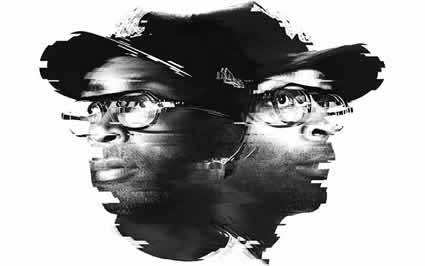
Excerpts from September 14, 2008
 - Press Release
- Press ReleaseIn “Outside Man: Spike Lee’s Unending Struggle” (p. 52), John Colapinto profiles Spike Lee, Hollywood’s most prominent black director, whose latest movie, “Miracle at St. Anna,” about an all-black unit of the U.S. Army that battled the Nazis during the Italian campaign in the Second World War, will be released later this month. Three of Lee’s prior films, “Do the Right Thing,” “Jungle Fever,” and “Malcolm X,” “have earned him a reputation as a filmmaker obsessed with race,” Colapinto writes. While his first movie, “She’s Gotta Have It,” led some to call Lee “the black Woody Allen” (“How can you say anybody is the black anybody after one film?” Lee asks Colapinto), his third film, “Do the Right Thing,” about a race riot in Brooklyn, “changed the public perception of Lee,” Colapinto writes. “He became a kind of Malcolm X of American cinema… . His subsequent films were controversial even when he did not intend them to be.” “People think I’m this angry black man walking around in a constant state of rage,” Lee tells Colapinto.
Lee speaks with Colapinto about notions of blackness, especially as they concern Barack Obama, who has had to address concerns about whether he is “black enough.” “It’s ignorance,” Lee says. “Here’s the thing. I’m not one of these people who’re going to be defined by the ghetto mentality, that you have to have been shot, have numerous babies from many women, be ignorant, getting high all the time, walking around with pants hanging from your ass—and that’s a black man? I’m not buying that.”
Lee’s critics note that he is quick to accuse others of racist attitudes in their judgments of his films. “The fact that Spike Lee is a talented guy is inarguable,” Stanley Crouch, the African-American cultural critic who has long been one of Lee’s fiercest detractors, says. “But if you make movies as consistently inferior to the movies of a man like Woody Allen or Martin Scorsese and cry ‘racism’ or imply racism, when your movies are not as successful as theirs are—what is that?” Scorsese, for his part, tells Colapinto that he admires Lee. “I always responded to his work as a fresh, original American voice in cinema—mainstream cinema… . When you look at the list of the work that he’s done—films, commercials, documentaries—the nature of the voice that he is in the entertainment industry in America is quite unique.”
Lee says that from the outset he knew that “I had to market myself and market the brand of Spike Lee.” He has a strong sense of whom he considers to be his peers in the film world, as illustrated by his insistence regarding the placement of a poster at a Sony music studio: “Don’t put us next to Judd Apapoe, whatever that guy is,” Lee says, referring to Judd Apatow. “We gotta be next to Spielberg and Williams!”

































